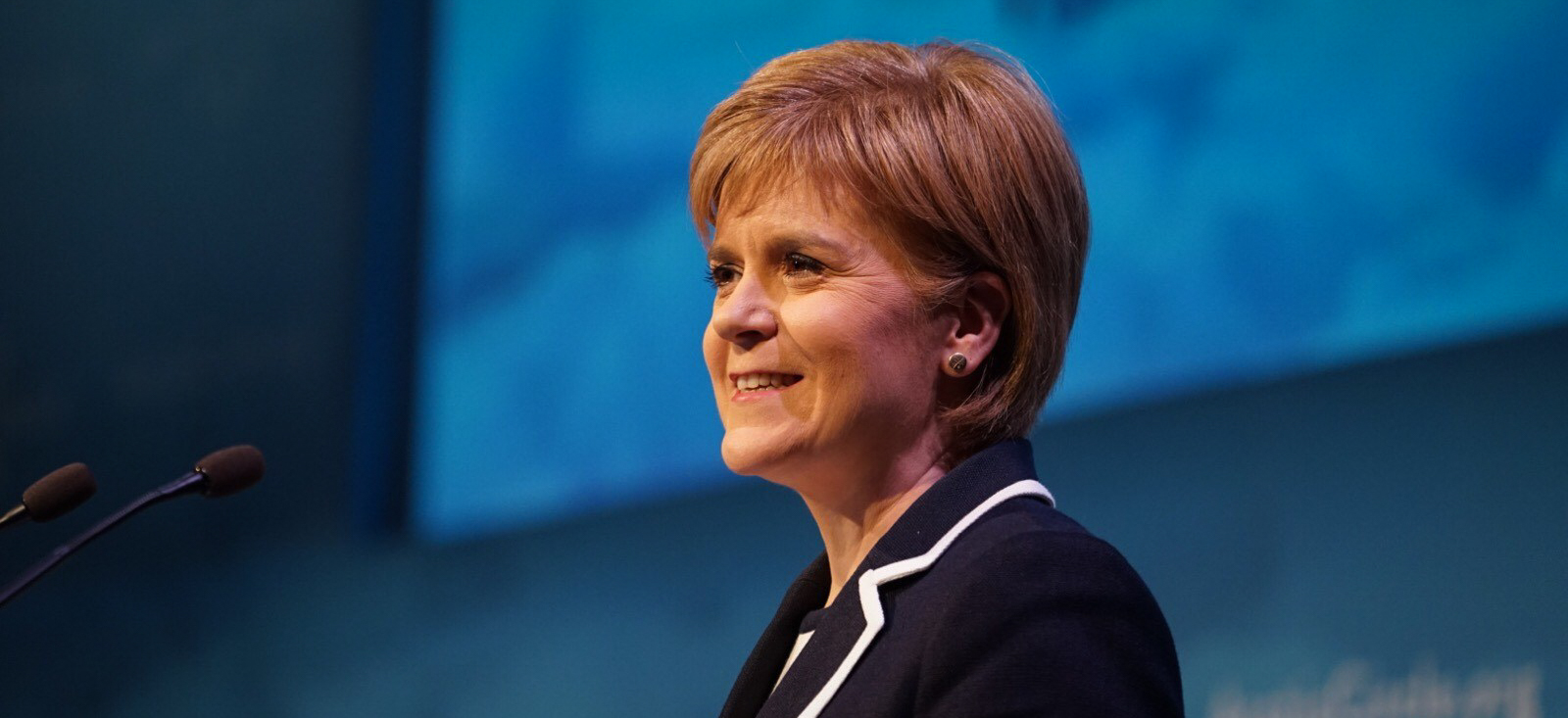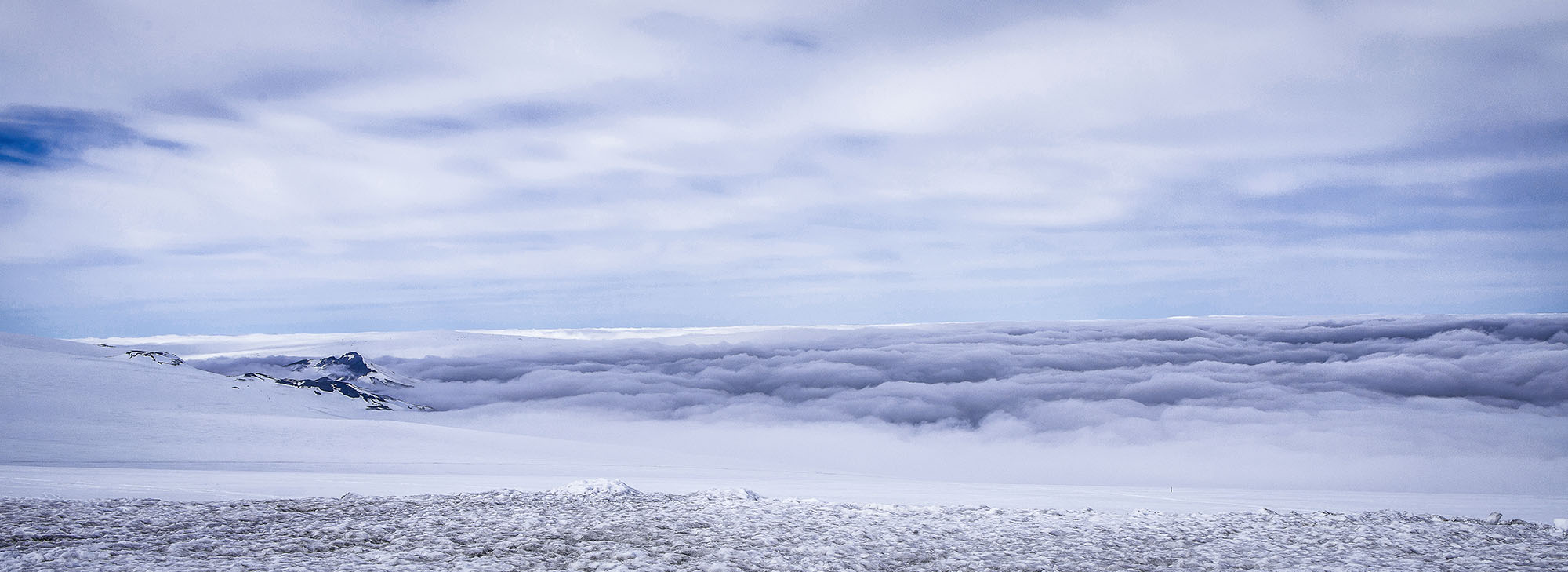Nicola Sturgeon: Focus on Scotland & the Arctic
POLICY / SCOTLAND & THE ARCTIC
Writer: Vilborg Einarsdóttir
Photographs: Arctic Circe, Hans Vera
January 2018
Scotland is determined to establish itself as a serious stakeholder in the community of High North nations. By embracing its northern history and heritage, expanding collaboration in energy, marine, tourism and other sectors with Nordic and Arctic neighbours, making use of its geographical position to Arctic shipping routes - and by positioning itself in the leading front of countries combating Climate change. External Affairs Secretary, Fiona Hyslop, confirmed at an Arctic Circle Forum event in Edinburgh recently that an Arctic Strategy will be developed by the Scottish Government, stating that: "With the threat of a hard Brexit still possible, it is important we continue to work with our northern neighbours to build strong relationships." At the same event Iceland's former president, Ólafur Ragnar Grímsson, founder and chair of the Arctic Circle Assembly, encouraged Scottish authorities to move forward, saying: "Whatever Scotland's constitutional position, you can enter the Arctic discussion in a full and inclusive way. The new Arctic neighbourhood needs Scotland."
Scotland's First Minister, Nicola Sturgeon wholeheartedly agrees.
"I believe, for Scotland to position itself as a gateway to the Arctic is a much better perspective than as a country at the "end of Europe". I also think, that change of perspective is already well underway,” says the First Minister speaking to JONAA at the Scotland hosted Arctic Circle Forum - Scotland and the New North, only weeks after an audience of over 2000 people, policy makers, scientists, business representatives, academics and other High North stakeholders, listened to her deliver a strong message from Scotland on the stage of the annual Arctic Circle Assembly in Reykjavik, Iceland. (See video below.)
"Scotland's northernmost part in the Shetland Islands is closer to the Arctic than it is to London. That is how far North we are. We share many interests and challenges with our northern neighbours, from renewable energy and climate change targets to social policies and improved connectivity, to name a few. We have centuries of historical and cultural connections and are presently collaborating in many sectors.
Geographically it makes so much sense to look North, although in Scotland we have been conditioned for centuries to look South. Which of course will continue to be an important direction for us to look. But it is through looking North that I think we will see more and greater opportunities open up for Scotland.”
The First Minister points out that Scotland has already engaged with the Nordic countries on several social issues and implemented Nordic social solutions like Finland's baby-box for newborns, looked to Denmark's experience in delivering support for people with disabilities and to Iceland’s Childrens House concept, for developing services and protection for vulnerable children. At the same time Scotland collaborates with Nordic neighbours on diverse projects in the marine, academic, scientific, tourism and energy sectors, e.g. the High Wind Scotland project, a 25 km floating windfarm off Scotland's north east coast, developed in cooperation with Statoil, Norway’s State Energy Company to provide energy for thousands of homes.
The First Minister, Nicola Sturgeon speaking in Edinburgh. ©Arctic Circle
So, in view of this growing cooperation, would an independent Scotland become perhaps more "Nordic" than anything else? Might we see the Scottish society leaning more towards the structure of the Nordic societies than that of the UK?
"More engaged and active in the North I think, rather than more “Nordic” than British. Geographically Scotland is a part of the British Isles and will always be a part of the British Isles," says Ms. Sturgeon. "Scotland will become independent, but there will always be an importance and eminence to relationships based on our geographical position, because they are born of centuries of family relationships, cultural and social relationships. It would be unrealistic, even undesirable, to suggest that after independence this would not continue to be the preeminent set of relationships that Scotland has. Many people in Scotland, passionate supporters of independence still feel a strong sense of being British and I don´t think that will change," says the First Minister.
"We also want to be a European nation, contributing fully to Europe, as was strongly supported in the Brexit vote in Scotland. But it matters greatly for us to look North, because within the northern perspective for Scotland are great opportunities. To see the collaborations we can have with Arctic and Nordic countries and to join hands in dealing with the common challenges we face. All this comes with opportunities for Scotland, whether that is in tourism, transportation, marine science, energy solutions, social solutions or economic benefits of that northern perspective.
I think that the perspective of Scotland being a gateway to the Arctic is logical for more reasons than the fact alone that we are the one non-arctic country geographically closer to the Arctic than any other. This I have strongly felt in the past two years participating in the Arctic Circle Assemblies in Iceland. A gathering which very much changes your perspective on the world.”
Ms. Sturgeon continues. “An independent Scotland, is not a question of either - or. We will become independent. But, we do not need that independence to work closer with the North. That fact of our position within the British isles shouldn't be to the exclusion of working more cooperatively with Nordic countries and Arctic states. Scotland already has in many respects quite a Nordic outlook and we look to Nordic countries for inspirations on social policy and economic policy. Almost regardless of whether we are independent or not, I believe we will become more and more inclined to look North,” says the First Minister.
“Having said that, it would be irresponsible of me to state that constitutional arrangements do not limit us at all. They do to a certain extent. But we seek to make as big a contribution as we possibly can to the North and to the world, regardless of the constitutional limitations placed on Scotland.”
Finally, in your opening speech at the Arctic Circle Forum here in Edinburgh, you said: “The similarities, geographical and cultural mean that Scotland and the Arctic states often face the same issues. We are seeing that more and more, as our nations adapt to major economic and environmental changes, from the onsets of Global warming to the effects of globalisation. It means that now, more than ever before, there is a need and indeed an opportunity for us to work together on shared priorities. That, is what the concept of the New North is all about.”
In view of these words, what do you see as Scotland’s most valuable contributions in the community of Northern and Arctic nations?
“I think that opportunities for Nordic and Arctic countries to work with and learn from Scotland are many. Sustainable tourism being a good example of an industry of over 200.000 local jobs, where Scotland has considerable strength and can contribute greatly to remote northern areas that are fast becoming more accessible because of Global warming. Regions that are predicted to see tourism grow substantially in the near future. Of social policies there are several developments we have pioneered in Scotland that are watched closely by other countries, the minimum pricing of alcohol being an example of one.
But, the most important of all our shared priorities is Global warming and combating Climate change. It is the most important issue our times and we all share a moral obligation to protect the planet for future generations.
Scotland is determined to lead by example and be a leading nation for new energy technology, renewable energy outputs, smart grids, battery storage, wind farm development, marine energy technology like tide and wave power, adaptation of electric vehicles and so on.
Early on, Scotland set ambitious emission targets which we are well on our way to meet and actually in the process now of making our targets even tougher. What we have seen in this work is that Climate change comes not only with challenges, but that within those challenges lie significant and innovative opportunities for local economies. Our low carbon sector alone currently employs 60.000 people and has great potential for growth, to name one example.
So, working together on Climate change is the most important issue for the Arctic environment and one where Scotland can contribute to greatly. It is first and foremost important for the future of our planet, and it is essential for the whole Arctic and North which is predicted to warm faster than the rest of the world. But at the same time as it is so important that we work together on combating Climate change in a sustainable manner, it is equally important that we seek opportunities within that combat that will also bring economic benefits to communities in the New North,” says Nicola Sturgeon, Scotland's First Minister. ▢
More Focus on Scotland & the Arctic:
Vilborg Einarsdottir is the Editor-in-Chief of JONAA, the Journal of the North Atlantic & Arctic and a JONAA partner & founder. Formally a journalist for 12 years in Iceland, she has worked since 1996 as a specialised producer of film, photography and media productions on extreme locations in Arctic Greenland and as a cultural producer in the Nordic region. She has written scripts for feature films and documentaries and edited photography books.








